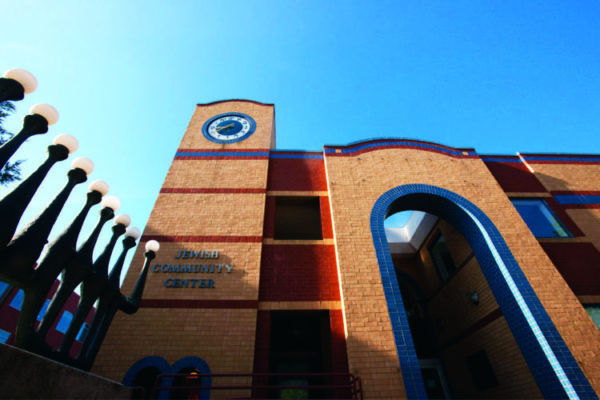
Pittsburgh teens and their mental health are the main focus of new JHF grants
This story first appeared in NEXTpittsburgh, which publishes Kidsburgh.
Local teens and families received $115,000 toward support services this week, as the Pittsburgh-based Jewish Healthcare Foundation (JHF) announced its latest round of grants.
Established in 1990 with proceeds from the sale of Montefiore Hospital to UPMC, the JHF is a healthcare-focused nonprofit that mainly serves residents of Pittsburgh and Western Pennsylvania. The grants, announced on Aug. 26, will create new mental health services in the Pittsburgh area and may have a broad impact across the state.
The main focus: Helping the growing community of teenagers struggling with stress and mental health issues.
We break down the projects below:
The Jewish Community Center (JCC) in Squirrel Hill
The JCC received a two-year, $70,000 grant to fund a part-time teen engagement coordinator. The coordinator will engage with local teenagers on mental health issues, as well as build partnerships with other youth services in the area.
The grant builds off the ongoing 15217 Neighborhood-based Teen Mental Health Initiative, a collaboration between the JHF, JCC, Jewish Federation of Greater Pittsburgh and Jewish Family and Community Services. The program connects adolescents in Squirrel Hill with various mental and emotional support programs.
Among the program’s goals: Communicating the seriousness of our country’s adolescent mental health crisis, creating a model for effective neighborhood safety nets, offering community-based mental health first aid training sessions and identifying 15-30 “community champions” in Squirrel Hill and neighboring areas who can participate in regional mental health first aid training events.
Speaking with NEXTpittsburgh, JHF President and CEO Dr. Karen Wolk Feinstein says that this work in Squirrel Hill grew out of a recognition that formal, institutional services for teenagers are in woefully short supply.
“Maybe the best thing we can do is to activate neighborhoods to develop their own safety nets,” she says.
The CHILL Project
Working with experts from Allegheny Health Network and the Jefferson Regional Foundation, educators from Baldwin High School will use a one-year, $20,000 grant to develop and implement the CHILL Project, a mindfulness-based education model.
The program includes one-on-one counseling for those students most in need of support and also builds in time throughout the day for the entire student body to pause, breathe and focus.
While the project seeks to put mindfulness practices into every aspect of learning, the school will focus in particular on applying these skills to alternative discipline measures. Pittsburgh’s public schools have had some success with alternative discipline approaches.
As the work unfolds during this school year, Feinstein and her colleagues hope the pilot will offer lessons for other districts as well as help inform national policy.
Pennsylvania Special Supplemental Nutrition Program for Women, Infants and Children (WIC)
The WIC program has served new mothers and families across the state since 1974 through a variety of health and nutritional support services.
Today, the program is seeing a precipitous drop in enrollment, which could spell large reductions in federal funding for the organization. In order to keep WIC robust and available to all Pennsylvanians, the JHF made a $25,000 donation to fund a summit in Harrisburg this fall. Dates are still to be determined, but the plan is that experts and other stakeholders will gather to brainstorm about strategies to fortify and perhaps even expand the program.
As Feinstein notes, many of the families that rely on WIC are often from vulnerable populations that could benefit from a wide range of social services. We want to “think of WIC more broadly than just a nutrition program,” she says.
JHF points out that states including Maryland and California have WIC program strategies that could work well in Pennsylvania. The state’s Department of Health and the Pennsylvania Health Funders Collaborative have also committed to funding the summit.